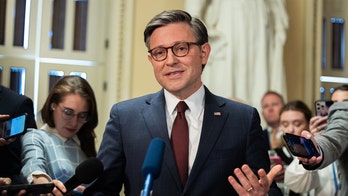In a 5-4 decision, the Supreme Court ruled Monday that several high-ranking government officials cannot be sued for their official actions in the wake of the Sept. 11, 2001, attacks.
The opinion, authored by Justice Anthony Kennedy and joined by the court's conservative justices, upholds long-standing immunity protections given to government officers for their official duties.
The case focused on the FBI's round-up of mostly Muslim men in the weeks following the Sept. 11 attacks. One of those men, Javaid Iqbal, sued former Attorney General John Ashcroft, FBI Director Robert Mueller and two dozen other government workers he claimed were responsible for his arrest.
Iqbal, a Pakistani Muslim, claimed the FBI policy was so targeted toward Muslim men that it was discriminatory.
Iqbal spent nearly six months in solitary confinement in New York in 2002. Iqbal pleaded guilty to conspiracy and fraud and was eventually deported to his native Pakistan.
He had argued that while Ashcroft and Mueller did not single him out for mistreatment, they were responsible for a policy of confining detainees in highly restrictive conditions because of their religious beliefs or race.
Monday's ruling rejects that argument and says that Iqbal lacked the evidence necessary to cross the high threshold required to hold government officials personally liable for their official acts.
"On the facts," Justice Kennedy wrote, "...the arrests Mueller oversaw were likely lawful and justified by his nondiscriminatory intent to detain aliens who were illegally present in the United States and had potential connections to those who committed terrorist acts."
The court on Monday overturned a lower court decision that let Iqbal's lawsuit against the high-ranking officials proceed.
The Associated Press contributed to this report.




